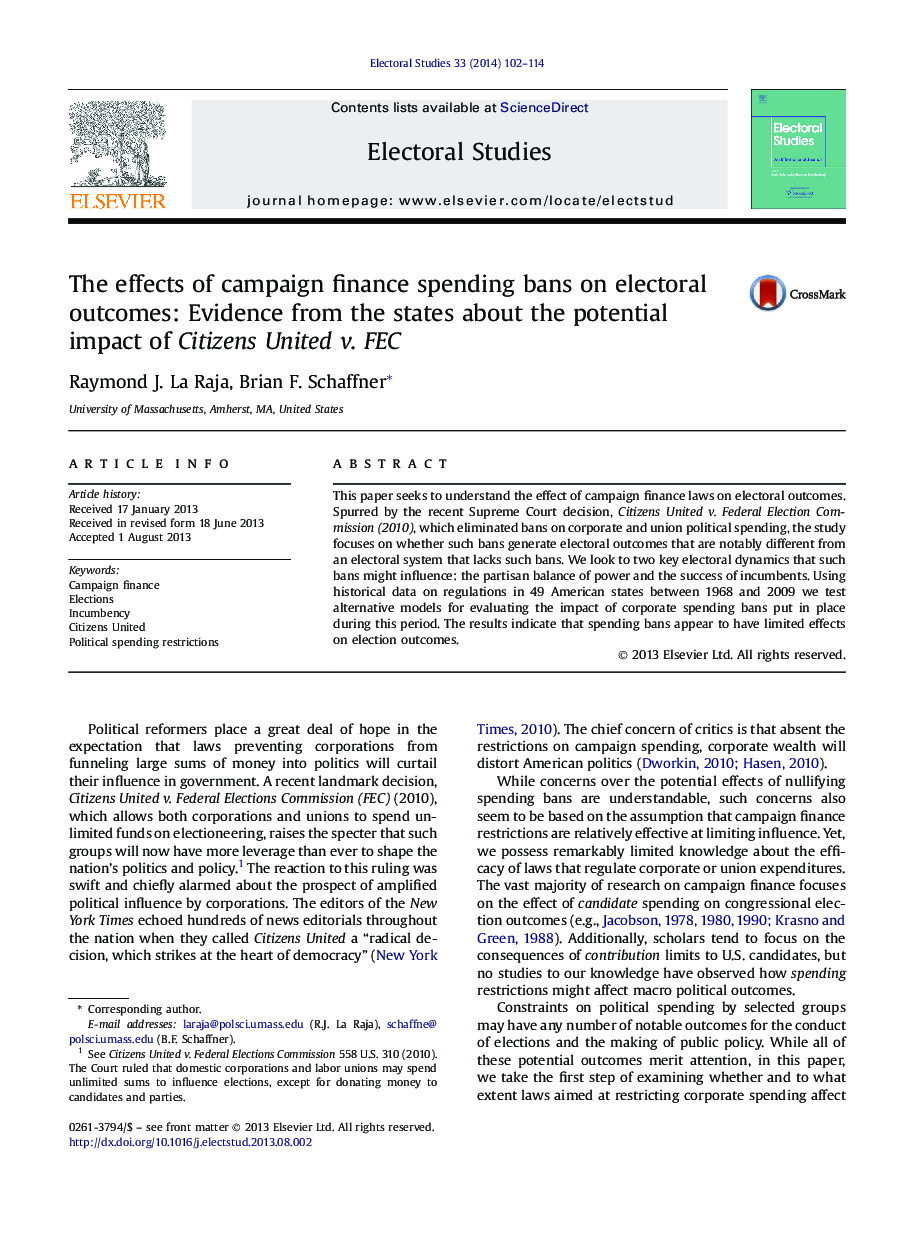| Article ID | Journal | Published Year | Pages | File Type |
|---|---|---|---|---|
| 1051895 | Electoral Studies | 2014 | 13 Pages |
•The introduction of spending bans has little effect on the success of parties in winning seats to the state legislature.•Spending bans also do not alter the partisan balance in votes received in elections.•Spending bans also do not affect the re-election rates for incumbents running for re-election.•Spending bans also have little influence on the share of the vote earned by incumbent candidates for office.
This paper seeks to understand the effect of campaign finance laws on electoral outcomes. Spurred by the recent Supreme Court decision, Citizens United v. Federal Election Commission (2010), which eliminated bans on corporate and union political spending, the study focuses on whether such bans generate electoral outcomes that are notably different from an electoral system that lacks such bans. We look to two key electoral dynamics that such bans might influence: the partisan balance of power and the success of incumbents. Using historical data on regulations in 49 American states between 1968 and 2009 we test alternative models for evaluating the impact of corporate spending bans put in place during this period. The results indicate that spending bans appear to have limited effects on election outcomes.
